People of the wind gone with the wind!
Have you ever wondered how pristine a life nomads live in the nature with a lifestyle in harmony with the mother nature?
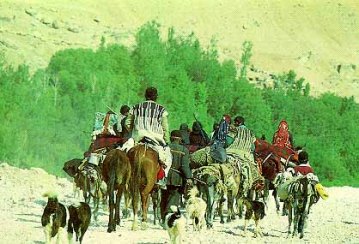
It might sound exciting but there is more to a nomadic life than just breathing fresh air and enjoying living in a variety of beautiful places!
As a member of the Bakhtiari tribe, the biggest nomadic tribe in Iran, I have experienced moving to winter and summer resorts (quarters). I was born into a city dweller Bakhtiari family but as a teacher for nomad children I voluntarily went to live and travel with them. In the following lines I will describe where these people live, what their language is, and how the discovery of the first oil well in the Middle East in our territory changed our lives. At the end I will mention one of the strangest sociolinguistic phenomena I have noticed.
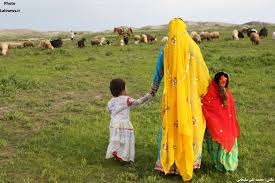
Geography
Bakhtiari is the biggest nomadic tribe in Iran and their territory is in the south west of the country in two major provinces of Khuzestan and Chahar Mahal-Bakhtiari. They start moving to the high lands of Chahar Mahal-Bakhtiari in the spring and they arrive there after two months and in the beginning of the fall they start moving back to Khuzestan province which has a hot climate and arrive there in October to spend the rest of the year there.
Their interesting lifestyle and hierarchical power structure has attracted the attention of documentary makers (for instance Grass: A nation’s battle for life 1925); People of the wind, 1976). In these documentaries the film crew live with these nomads and move with them to their resort. Also, a number of English travelers have lived with Bakhtiaris and written books on the lifestyle and the tribal structure. (see Blosse H.,1890; Lorimer, D. L. R., 1930)
Living with the nomadic Bakhtiaris was an exhilarating experience I never imagined I could have. Firstly, the dialect which I will describe later, was at times difficult to understand because of the vocabulary I had never heard in my city. The traditions I saw during those journeys were all new to me. Only my grandfather could remember those traditions he had seen as a child. But because of the climate change and industrialization of many parts which used to be grazing lands for Bakhtiaris’ livestock, lots of them have now chosen to live a city life and moved to cities.
The area inside the upside-down thunderbolt symbol is Bakhtiari territory.
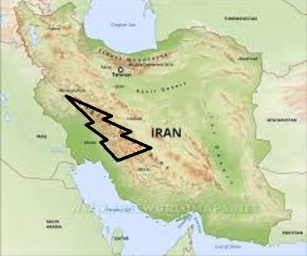
Language
The language of Bakhtiaris is a dialect derived from old Persian which has now been mixed with the modern Persian. This dialect is not intelligible to Farsi speakers.
Unfortunately nowadays this dialect is not commonly used by the younger generation and especially the ones living in cities. My younger sister and brother speak modern Persian/Farsi but I speak Bakhtiari with my parents. It is considered (by some people) not prestigious to speak it and even parents speak Persian to their children at home without realizing that this dialect has now fewer speakers than it used to have 40 years ago.
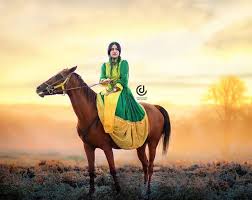
Wedding
With lots of people now leaving a nomadic life behind and going to cities to live, many traditions of this tribe are being forgotten as they used to be observed during their journeys. On the wedding days for instance, I observed that the groom who is in a different tent from the bride, walks towards the bride’s tent holding the leash of a horse, where he stops at the entrance until the father-in-law allows him to call out the bride. But the bride waits until the groom kisses the hand of her father as a sign of respect, and then gets on the horse and goes toward a place where all the families have gathered. Then, everyone starts dancing hand in hand in a circle. Women dress in colorful dresses and men in Chugha, a coat made from wool. I didn’t know how to dance to their traditional harmonious dance, but after observing for a while I joined the dance!
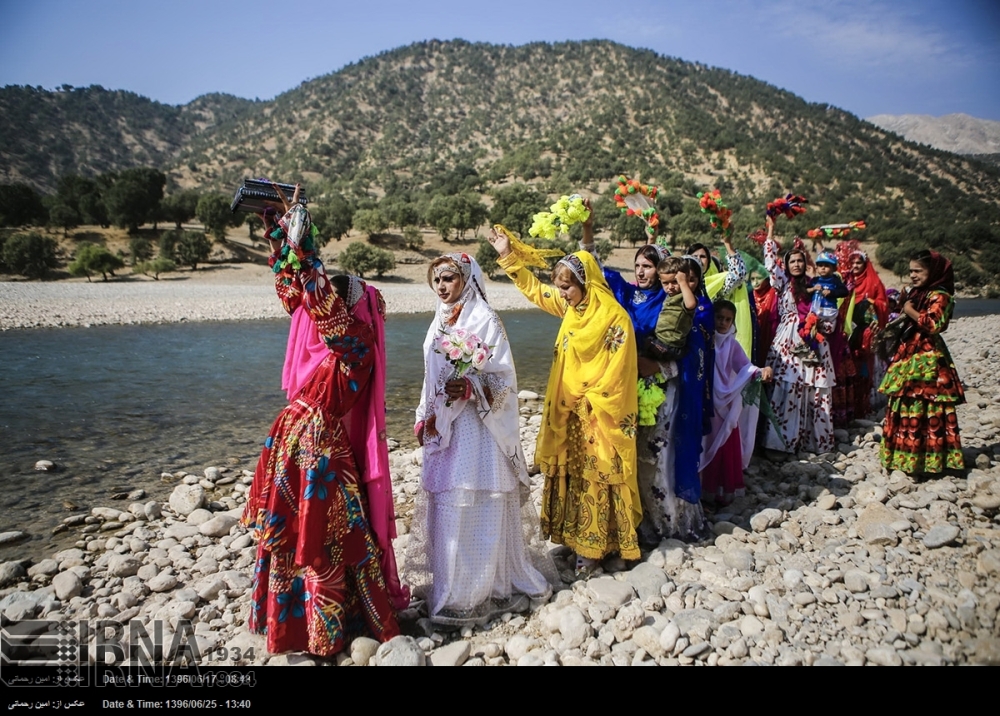
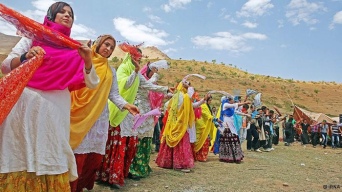
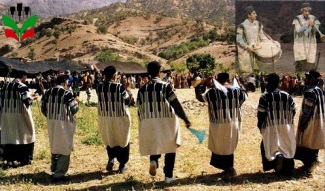
The discovery of oil in Bakhtiari territory
In 1908 the first oil well in the middle east was discovered in MasjedSoleiman by the British company led by William Knox D’arcy. Since this oil well was inside the Bakhtiari territory, the Bakhtiaris were paid for their land and asked to be the guardians of these sites. This was the beginning of an era for Bakhtiaris since they earned lots of money and also switched to a modern lifestyle leaving their nomadic life behind. The city was thriving and lots of golf courses, football stadium, cinemas, clubs, tennis courts, and swimming pools were built and people from the other parts of Iran came to work and live there; this flood of migrants also influenced Bakhtiaris’ lifestyle.
This change led to two major influences. Firstly, with oil came money and facilities and jobs and British and other cultures, which, combined with the free lifestyle of Bakhtiaris have ever since made them have a more liberal and tolerant worldview. On the other hand, this mixture of different cultures caused the Bakhtiari tradition and dialect to gradually fade away.
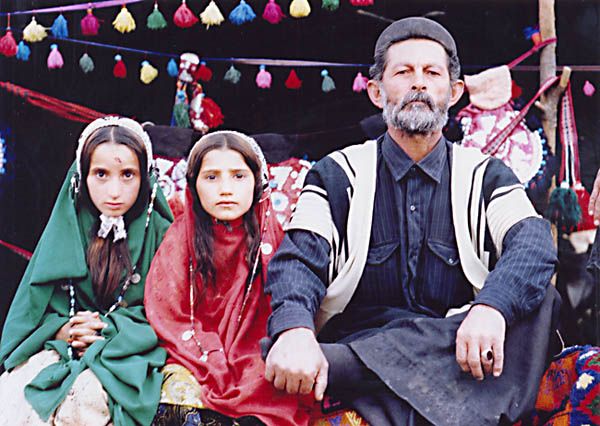
Final Thought
The discovery of oil was a blessing for the country but it was a bane to the traditions of Bakhtiari. Most of them became city dwellers and as a result, a lot of traditions were forgotten. Interactions with Farsi speakers and the development of media and internet led to the decline of the use of this dialect among families. Now, the last generations of people who knew lots of folkloric songs and vocabulary are very old and their knowledge of our customs and language is not of interest to the younger generations. This has led to the formation of different ways of speaking even among the members of the same family. Surprisingly, the following sentence can be heard in three different styles in my own family:
“I went home.”
1: The way I would say it: Mo rahm be hooneh. (Bakhtiari)
2: My brother: Mo raftom khooneh. (something between Bakhtiari and Persian)
3: My sister: Man raftam khooneh. (Persian)
Hopefully, more research will be done on the sociolinguistic evolution of this dialect and the diachronic changes it has gone through and more work will be carried out with regard to the customs and traditions.
Disclaimer: All the images used in this post were collected from the internet and were not taken by me.
Comments
Post a Comment